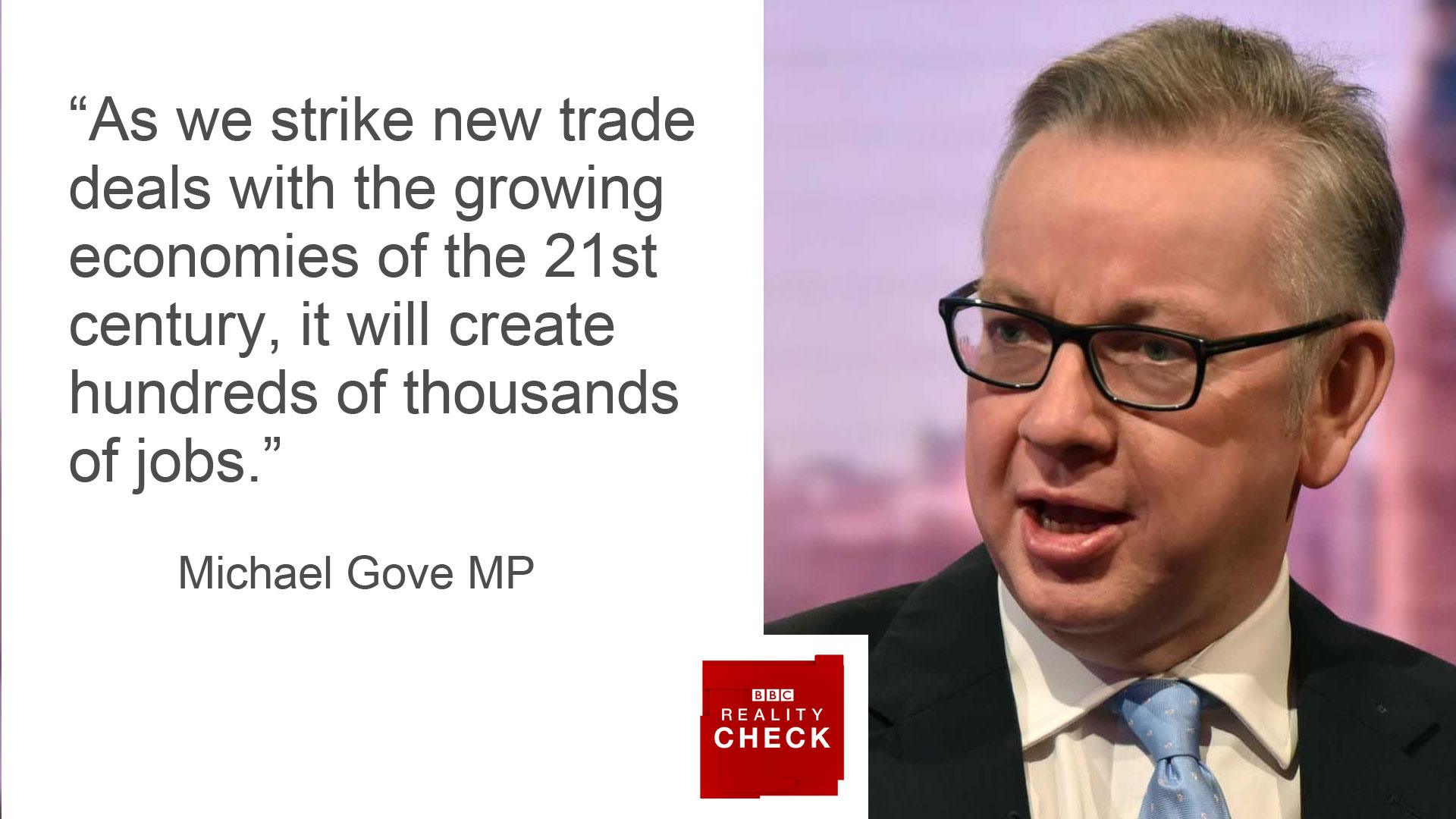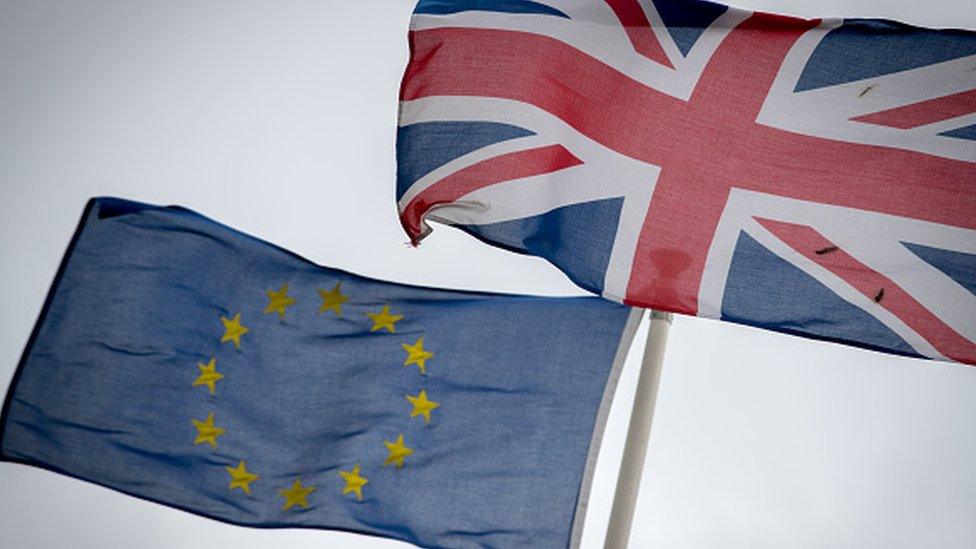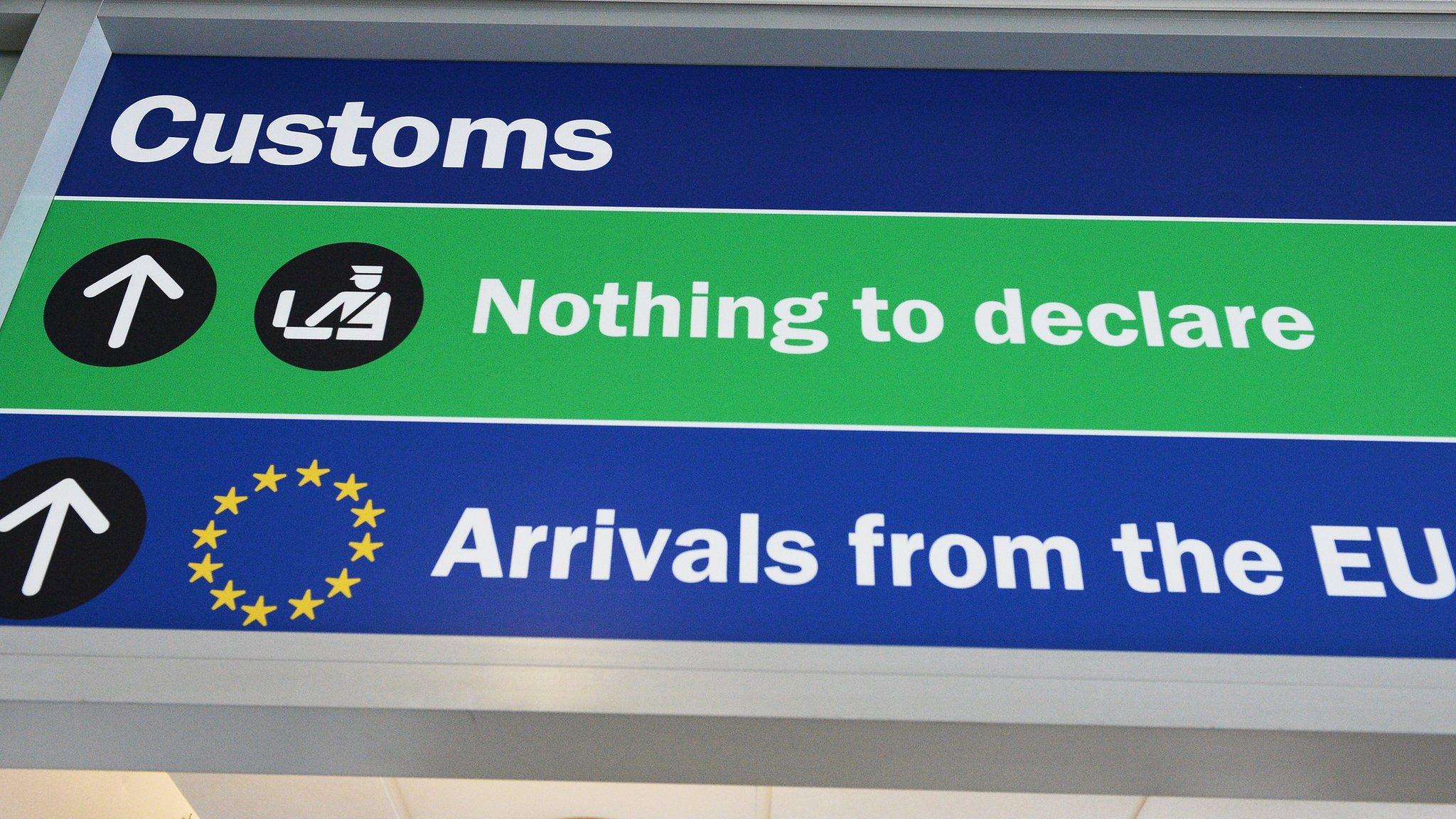Reality Check: Would leaving customs union create 400,000 jobs?
- Published

The claim: Leaving the customs union and striking trade agreements would result in 400,000 new jobs being created.
Reality Check verdict: We know nothing about the post-Brexit trade deals that will be done and the 400,000 figure ignores the effect on jobs of increased imports, as well as any effects on trade from leaving the EU.
Change Britain, the hard-Brexit supporting campaign group founded by Michael Gove, has released research, external, which it says shows that the UK leaving the EU's customs union and striking trade agreements with eight economic partners could result in the creation of up to 400,000 new jobs.
The EU customs union is the area over which goods can move without needing customs checks. It is not the same as the single market - Norway, for example, has access to the single market, but is not part of the customs union and can set its own external tariffs.
This debate is important because it is possible that the UK could leave the EU and the single market but still be part of the customs union, which would make it simpler to trade with other European countries but would limit the UK's freedom to make trade deals with the rest of the world.
What matters is not only how many new jobs are created, but also the overall effect on jobs.
Assuming trade deals with other countries would create jobs, we must also take into account the jobs that would be lost by abandoning the UK's existing free trade deal with the EU and with other countries via the EU.
Similarly, we need to look both at the number of jobs that would be created by increasing exports as a result of trade deals and how many would be lost by increased imports under those same deals.
Jonathan Portes, professor of economics and public policy at King's College London, told BBC Radio 4: "There are costs and benefits and simply counting the benefits without counting the costs is just nonsense."
Let's take a look at where the 400,000 figure comes from.
Change Britain started from a 2012 European Commission report, external that investigated how much EU exports would increase if free trade deals were done with six countries (USA, Canada, Japan, South Korea, India and China) and two trading blocs (ASEAN, external and Mercosur, external).
The first thing to say is that the EU already has a trade deal with South Korea, so the UK is already experiencing the effects of that deal.
The key part of this is the conversion from additional exports to additional jobs - this comes from another European Commission report, external, which found that between 2000 and 2007, three million jobs were created by additional exports outside the EU, at a conversion rate of 16.7 workers per million euros (£850,000) worth of extra exports.
Taking the experience of the entire EU between 2000 and 2007 and projecting it onto the UK post-Brexit from 2019 onwards, makes very little sense.
But this in itself gives too much credence to the use of the Commission's estimates when we do not know how long it would take to reach deals or the terms on which they would be agreed.



- Published3 January 2017

- Published28 July 2016
